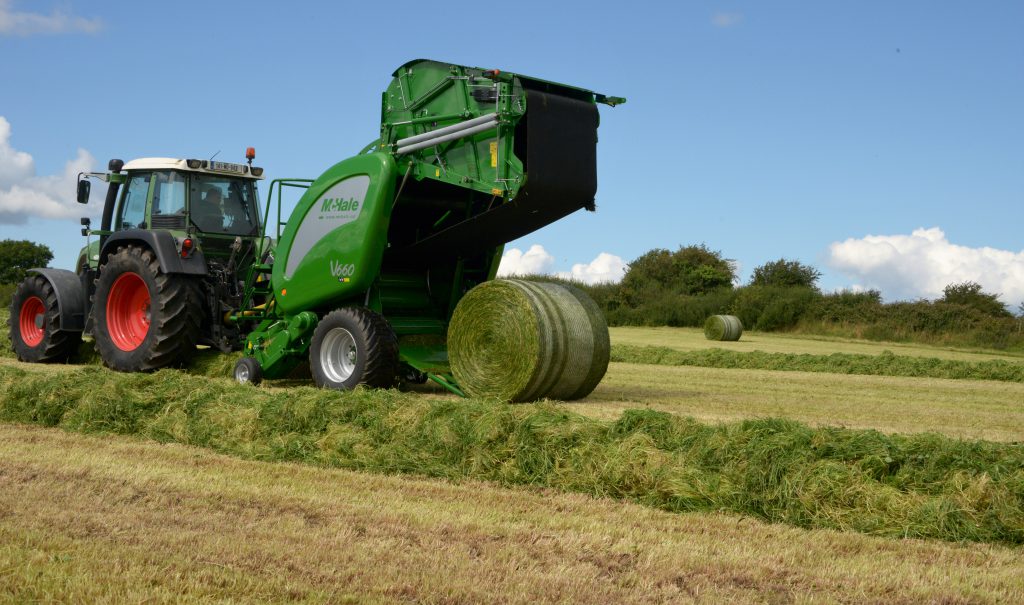Farmers – like the general public – are known to be a superstitious bunch from time to time; everyone has their own weird rituals that they like to stick to for good luck.
Given that there is a level of apprehension among people when a Friday falls on the 13th of a month, we decided to look at the weird and wonderful superstitions that farmers are known to follow.
1. Fairy forts
Most farmers wouldn’t dream of touching a fairy fort, or ring fort as they are also commonly known.
Given that there are thousands of fairy forts located across Ireland, plenty of farmers have them on their land.
Would you risk bringing the wrath of a band of fairies down on yourself by wrecking their home?

2. Lone trees
Sticking with the fairy theme, it is also believed to be bad luck if a person cuts down a lone tree in the middle of a field or up on the side of a hill – particularly a whitethorn tree.
If you are to listen to old stories, tampering with these trees will anger the fairies.
Maybe it’s best to leave well enough alone; sure doesn’t that tree the contractor is always complaining about when the silage is being cut give plenty of shade to the cattle during this sunny weather anyway?

3. Buying or selling livestock on a Sunday
Given that Sunday is meant to be a day of rest, a lot of farmers and dealers avoid buying or selling livestock on the sabbath.
It’s hard enough to make a profit on cattle and sheep at the moment without having bad luck to contend with from the moment you buy them.
4. Avoiding batches of 13
A lot of people are very wary about the number 13; houses and cars with 13 in the address or registration are said to be cheaper given people’s fear.
Farmers are no different, avoiding bringing sheep or cattle to the mart or factory in batches of 13 whenever they can.

5. Holly or hazel sticks
Another interesting superstition we came across was that some farmers believe that you shouldn’t use a holly or hazel stick on an animal.
Apparently, these were used for the handles of witches’ brooms as well as druids’ wands.

6. Bringing the cow to the bull
Given that today is Friday the 13th, we heard that some farmers wouldn’t be that keen to bring the bull to the cow if she’s in heat.
What difference does three weeks make anyway?

7. Holy water
Sprinkling holy water on any new purchases that come through the farm-gate should ward off any bad luck, or so we are told.
It couldn’t do any harm anyway.

8. The dreaded magpie
Like the rest of the general public, farmers are known to wave at a lone magpie.
This isn’t out of common courtesy, but genuine fear.
As the saying goes: “One for sorrow, two for joy, three for a girl, four for a boy, five for silver, six for gold, seven for a secret never to be told.”

9. Is someone at the door?
Farmers love putting on a good fire during the cold winter months.
In parts of the country, farmers believe that if a sod of turf falls out of the fire then someone is calling to the house.
10. Eating in a field
Every farmer is accustomed to eating a few sandwiches and drinking a cup of tea on top of a bale during the silage season.
But – apparently – if you don’t leave a few crumbs behind it’s bad luck. We’re not condoning littering though.

11. Horseshoes
If you find a horseshoe and nail it to the door, it will apparently bring you good luck.
But don’t let your mother or father catch you nailing it to the front door of the house; or you might have the world’s end of back luck down on top of you.
12. A St. Brigid’s cross
When it comes to February 1 every year, plenty of hay barns, slatted sheds and milking parlours are decorated with trusty St. Brigid’s crosses.
It’s about the only use any farmer could find for rushes…
13. It’s bad luck to move cattle without cursing
As the ancient proverb says: ‘Will ya stand in that f**king gap?’ Despite the long-held belief, moving cattle without cursing does not lead to bad luck.
But it can relieve stress.
